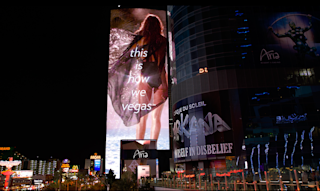The Travel Budget Juxtaposition
The last few years have hit our wallets hard. Luxuries have been curtailed, but we’re not prepared to relinquish everything. The Pandemic taught us that little pleasures make a big difference, and that experiences often matter more than material possessions.

Travel is top of that list of experiences, but with finances strained, money-saving tools are critical. Skyscanner’s ‘Everywhere' search, displaying prices from the lowest to highest, is the top search destination for travelers globally this year, demonstrating that cost is key for the majority, and that travelers are willing to economize by picking a destination where their currency will buy more (36%).1
In Plus Company’s 2024 research survey conducted by Angus Reid in February 2024, 79% of respondents in the U.S. and Canada (87% 18-34 year-olds) state they ‘travel as cheaply as possible’, and 19% say they’re ‘willing to go into debt for traveling’2. The savviest are ‘Destination Duping’ – exploring lesser-known alternatives to the world’s more familiar hotspots. Think Choquequirao instead of Machu Picchu – equally impressive, much less crowded, easier on the wallet, and massive ‘discovery’ kudos for social media hustlers.
According to American Express, 47% of Next Gen (Gen Z & Millennials combined) have planned an entire trip around visiting a specific restaurant. A 2023 study by Visa found “More than half of travelers are booking the elements of their trips separately, while far less than a quarter of them are opting for all-inclusive.”
This is echoed by Caroline Khangi, Trends & Foresight Expert at Cossette: “People might want this over the top Mamma Mia experience in London, but if the price is too high, they’ll book a cheap hotel.
With all the financial strain, it may seem surprising that the luxury end of the travel market is expected to enjoy strong growth until 2031. Older, more affluent Millennials (36%) and Gen X (35-54) are happy to splurge on accommodation. Visa’s research reveals that 40% of travelers booking hotels are opting for 4 stars or above17.
Higher income households ($100k+) prefer to spend more of their travel budget on premium transportation, e.g., upgrading to first class (17% vs 12%), choosing seats (32%), buying extra insurance (31%) and adding extra baggage (30%).
For the middle-income earners it’s about making the most of the budget. It’s worth putting in the work to find the best deals and hacks. This looks like more modular travel, more tips and tricks learned from social media influencers, and choosing brands that understand the complex relationship between wealth and travel. Alaska Air is leading the way; it understands which customer segments are happy to spend/save on different touchpoints and this is activated through its customer loyalty program.
The areas of the industry expected to enjoy the greatest growth are quite diverse: Customized & Private Vacation, Adventure & Safari, Cruise / Ship Expedition, Small Group Journey, Celebration & Special Event and Culinary Travel & Shopping.
We all like to incorporate some element of luxury into our travels. How can the Travel & Tourism industry respond? The key is to look through a more emotional lens. To understand customers, don’t limit your knowledge to their spending habits. Understand who is driven by fear (and what you can do to alleviate it), and who is driven by desire (and what you can do to fulfill it).
1 Skyscanner Horizons: The outlook in 2023 as travelers redefine value
2 EHL Insights https://hospitalityinsights.ehl.edu/what-slow-tourism
3 American Express Travel’s 2023 Global Travel Trends Report
4 Visa - The Global Travel Intentions Study 2023. Visa
5 Luxury Travel Market Dynamics [2024-2031] : Challenges and Opportunities with Top Countries Data
6 Survey conducted by Plus Company from February 7th to 9th, 2024 among ar epresentative sample of 1,508 online Canadians, and 1,002 online Americans, who are members of the Angus Reid Forum
Share


